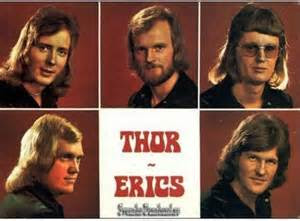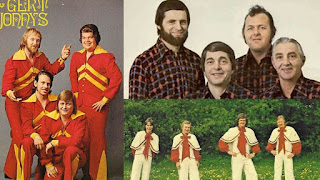Like, I'm sure, the rest of you, I'm baffled by the sight of US civilians saluting as if they're in the army (yes - I am joking, I'm well aware of the fact that most people wouldn't notice anything of the kind, or waste a second's thought on it if they did; but stick with me, this actually is going somewhere). I mean putting their hand up to their eyebrow, holding it there for a bit, and flicking it down again.
You see, civilians aren't supposed to salute like that. (I'm only talking about America, you understand, most countries don't have any rules about this type of thing.)
Obama continued the tradition, but he sometimes got it right.
That's the civilian salute, to the flag usually. But why did they need to invent a special salute for civilians?
It's because civilians bare their heads as a sign of respect when they salute the flag, and in most armed forces in most countries, a salute can only be made with something for the hand to touch - the peak of a cap or helmet. If an officer comes into contact with lower ranks who are bareheaded, they just stand to attention with their arms at their sides. The origin is supposed to be in knights in armour raising the visor of their helmets when they met, to reveal their faces and indicate they weren't about to attack.
So, given that civilians actually have their own salute, where does the idea of saluting without a hat on come from? The answer, which I came across while perusing my copy of The Bluejackets' Manual (19th edition, United States Naval Institute ISBN 0-87021-109-9, since you ask), is, surprisingly, the US Army and Air Force. In America, only the Navy insists on a hat being worn to return a salute. Who would have thought it?
You've been very patient so far, and now I'll get to the point of this post.
The present civil salute only dates from 1942. What did everyone in America do first thing at work, school, office or police station when they were saluting the flag before then?
THEY GAVE A NAZI SALUTE!
Except, of course, it's not a Nazi salute, or even a fascist salute. It's a Bellamy salute
https://en.wikipedia.org/wiki/Bellamy_salute, and it's just one aspect of a neoclassicist tradition that prevailed across different national cultures in the early 20th century.
The fascists and Nazis, with their Barnum-like talent for showmanship and overstated Hollywood-esque flash style, snapped up lots of early 20th century design icons and tainted them forever by their evil association.
The neoclassicism on steroids architecture we now think of as fascist can be found in the US (1930s govt. buildings, especially post offices, complete with eagles), the Soviet Union (their New York World's Fair pavilion was like a mirror image of the one Nazi Germany built facing it), and even Britain:
Walthamstow Town Hall.
And perhaps most sinisterly appealing of all, their uniforms. The cut of the notoriously glamorous SS black and silver combo (not designed by Hugo Boss, incidentally, but by an undistinguished painter and commercial artist, SS-Major Carl Diebitsch) comes from British uniforms of the First and Boer Wars, themselves inspired by shooting outfits like the Norfolk jacket worn by 19th c British landed gentry, and the distinctive contrast of the silver detail on black and the grinning skull comes from the uniform of the Prussian hussar.
We'll never be allowed to forget their evil genius for style, and we'll always be forced to endlessly re-view the Second World War because, as Kurt Vonnegut put it:
"Our war will live forever in showbiz as other wars would not, because of the uniforms of the Nazis" (Timequake, Jonathan Cape, London 1997, p.23).































